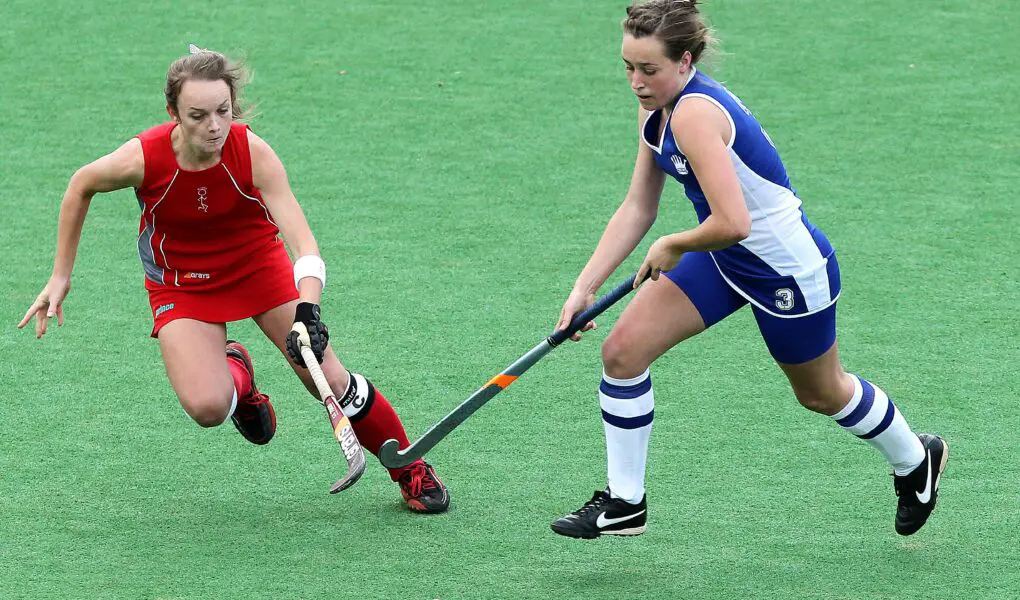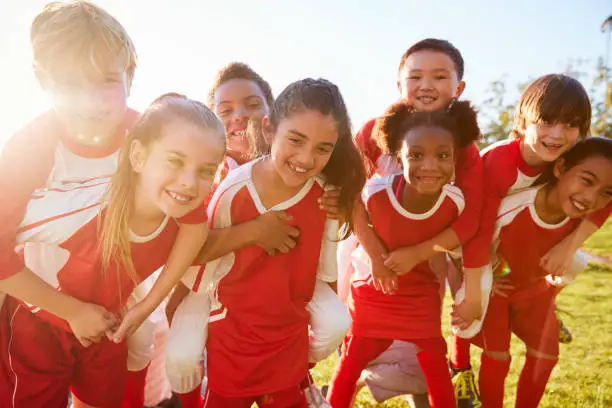As young athletes rise to the challenge of competing in a world full of diverse opportunities, they often need support to help them reach their full potential. Grants for Young Athletes can be the key to breaking down barriers, providing access to training, competition, and the resources necessary to grow and thrive in the competitive sports arena.
Whether you’re a budding tennis star, a football phenom, or an aspiring Olympic athlete, grants can open doors and create pathways to success.
In this post, we’ll explore the various grants available, the application process, and how you can position yourself or your child for success in the sports world.
Why Grants for Young Athletes Are So Important
Grants for Young Athletes help bridge the gap between raw talent and the tools necessary for success.
Many young athletes face financial barriers that prevent them from accessing top-tier training programs, high-quality equipment, or even the chance to compete in elite competitions.
These grants provide vital funding for aspiring sports stars and their families, helping them to cover expenses such as:
- Training and coaching costs
- Travel expenses for competitions
- Sports equipment and gear
- Tuition for sports academies and schools
- Health and fitness programs
Without these resources, even the most talented young athletes may never have the opportunity to develop their skills to the highest level. Thankfully, there are a growing number of grants available specifically to help young athletes overcome these obstacles and pursue their dreams.
a) Breaking Down Financial Barriers
Imagine a young gymnast dreaming of competing at the national level but unable to afford the high costs of specialized coaching and training facilities. Grants can provide the necessary funds to cover these expenses, ensuring that financial limitations do not hinder a promising athlete’s journey. By providing financial assistance, grants enable young athletes to focus on their training and performance rather than worrying about how to afford the essential components of their athletic development.
b) Enhancing Personal Development
Beyond just financial support, grants for young athletes often come with additional benefits such as mentorship programs, access to exclusive training camps, and networking opportunities with professionals in their sport. These resources contribute to the overall personal development of the athlete, helping them build confidence, resilience, and a strong work ethic—qualities that are invaluable both on and off the field.
Types of Grants Available for Young Athletes
There are various types of grants available to young athletes, each with a unique purpose and funding structure. Understanding the different options can help you identify the best fit for your needs or those of your young athlete.
1. General Sports Grants
These grants are designed to support young athletes in any sport, from soccer and basketball to gymnastics and swimming. General sports grants typically cover costs related to training, competition, and travel, providing young athletes with the opportunity to compete at the highest levels without financial barriers.
Example: The Women’s Sports Foundation offers grants and scholarships for young female athletes looking to compete in sports ranging from basketball to ice hockey. They focus on empowering women in sports and helping them reach their full potential.
2. Specific Sports Grants
Some grants are specific to certain sports. These grants are often offered by organizations, foundations, or even professional sports teams that want to promote excellence within their particular sport.
Example: The US Tennis Association Foundation provides grants for youth players to improve their skills, offering scholarships for coaching and tournament participation. Their goal is to make tennis more accessible to underserved youth in the United States.
3. Scholarships for Sports Academies
These grants are designed to help young athletes attend specialized sports academies that focus on high-level training. Many sports academies offer full or partial scholarships to help talented athletes access world-class coaching and development programs.
Example: The IMG Academy in Bradenton, Florida, offers a range of scholarships for athletes in sports such as tennis, basketball, and soccer. They work with sponsors to offer grants that help make their training programs accessible to young athletes from diverse backgrounds.
4. Government and State-Funded Grants
In addition to private foundations and sports organizations, governments at the local, state, and federal levels often offer grants for young athletes. These funds are typically offered to underprivileged youth or those who demonstrate exceptional promise in their sport.
Example: The Nike Youth Sports Program, funded through government partnerships, provides grants to schools and community organizations that promote youth sports participation. The aim is to make sports accessible to young people who might not have the financial resources to participate.
5. Diversity and Inclusion Grants
These grants are specifically designed to support athletes from underrepresented or marginalized communities. They help ensure that young athletes from diverse backgrounds have access to the same opportunities as their peers.
Example: The National Alliance for Youth Sports offers grants aimed at increasing the participation of youth from underrepresented communities in sports. These grants focus on breaking down financial and social barriers to participation.
6. Academic and Athletic Combined Grants
For student-athletes who excel both in the classroom and in their sport, there are grants that recognize and reward this dual achievement. These grants help cover educational expenses while also supporting athletic pursuits.
Example: The NCAA Foundation offers scholarships and grants to student-athletes who maintain high academic standards while competing at collegiate levels. These grants help ease the financial burden of higher education and athletic participation.
How to Find Grants for Young Athletes
While the availability of grants for young athletes is growing, it can still be a challenge to know where to start looking. Here are some tips on how to find grants that may be a good fit for you or your child:
1. Start with Sports Associations and Foundations
Sports associations like the National Federation of State High School Associations (NFHS), the U.S. Olympic Committee, and various national sports leagues (NBA, NFL, etc.) often offer funding opportunities for young athletes. You can visit their websites to find scholarship programs, funding opportunities, and other resources.
- National Federation of State High School Associations (NFHS): NFHS Grants
- U.S. Olympic Committee: Team USA Grants
- NBA Foundation: NBA Grants
2. Check Local and National Scholarship Databases
Online databases such as Scholarships.com and Fastweb list grants and scholarships for young athletes. These platforms allow you to filter results by sports, location, and other criteria, making it easy to find the best fit for your needs.
- Scholarships.com: Scholarships for Athletes
- Fastweb: Fastweb Scholarships
3. Visit School or College Sports Programs
Many high schools and universities offer their own scholarships and grants to athletes. If you’re a student, inquire with the sports department at your school or college to find out what grants or scholarships they offer for athletics.
- High School Guidance Counselors: Often have information on local grants.
- College Financial Aid Offices: Can provide details on available athletic scholarships.
4. Nonprofit Organizations
Nonprofit organizations like the Positive Coaching Alliance or the Aspire Sports Fund provide scholarships for young athletes in various sports. These nonprofits are dedicated to supporting youth development through sports and often offer funds for training, equipment, and other related expenses.
- Positive Coaching Alliance: PCA Grants
- Aspire Sports Fund: Aspire Sports
5. Community Foundations and Local Businesses
Local community foundations and businesses often sponsor grants for young athletes in their area. Check with your local Chamber of Commerce, community centers, and sports clubs to discover opportunities that might not be widely advertised.
- Local Community Foundations: Search for “[Your City] community foundation grants.”
- Local Businesses: Reach out to businesses that sponsor sports events or teams.
6. Online Grant Platforms
Websites like GrantWatch and GrantStation list various grants, including those for youth sports. These platforms can be valuable resources for finding both large and niche funding opportunities.
- GrantWatch: GrantWatch Sports Grants
- GrantStation: GrantStation
How to Apply for Grants for Young Athletes
Applying for grants can be a daunting process, but with the right approach, you can make sure your application stands out. Here are some tips to increase your chances of success:
1. Research the Eligibility Criteria
Before applying, carefully review the eligibility requirements. Some grants are open to all athletes, while others may be restricted based on factors like age, location, or the type of sport. Make sure you meet all the necessary criteria before applying.
Example: A grant might be specifically for female athletes under the age of 18 participating in team sports. Ensuring you fit these criteria before spending time on an application is crucial.
2. Prepare a Strong Application
A successful grant application often requires a detailed description of the athlete’s achievements, goals, and how the funds will be used. Make sure to highlight the athlete’s dedication, potential, and how the grant will help them achieve their goals.
Key Components of a Strong Application:
- Personal Statement: Share the athlete’s story, passion for the sport, and future aspirations.
- Achievements: List awards, records, and significant milestones.
- Budget Breakdown: Clearly outline how the grant money will be allocated (e.g., coaching fees, travel costs, equipment purchases).
- Supporting Documents: Include transcripts, recommendation letters, and proof of achievements.
3. Gather Recommendations
Many grant applications require letters of recommendation from coaches, mentors, or other professionals who can speak to the athlete’s potential and achievements. Be sure to ask for these letters well in advance of the deadline to give your references enough time to write a strong endorsement.
Tips for Gathering Recommendations:
- Choose the Right Recommenders: Select individuals who know the athlete well and can provide detailed insights.
- Provide Necessary Information: Supply recommenders with the athlete’s resume, achievements, and specific points to highlight.
- Follow Up: Politely remind recommenders of deadlines and express gratitude for their support.
4. Submit on Time
Make sure to submit your application well before the deadline. Many grants operate on a strict timeline, and submitting late may disqualify you from consideration.
Pro Tips:
- Create a Timeline: Note all application deadlines and set personal deadlines a few days earlier.
- Double-Check Requirements: Ensure all required documents are included and formatted correctly.
- Use Checklists: Many grant providers offer application checklists—use them to ensure nothing is missed.
5. Tailor Each Application
Avoid using a one-size-fits-all approach. Tailor each grant application to align with the specific goals and values of the grant provider. Highlight how the athlete’s objectives resonate with the grant’s mission.
Example: If applying for a grant focused on community sports development, emphasize the athlete’s involvement in local sports initiatives and how the grant will help further these efforts.
6. Follow Up
After submitting your application, follow up with the grant provider to confirm receipt and inquire about the timeline for decisions. This demonstrates your genuine interest and professionalism.
Example Email:
Subject: Follow-Up on Grant Application Submission
Dear [Grant Provider’s Name],
I hope this message finds you well. I recently submitted an application for the [Grant Name] and wanted to confirm that all necessary documents were received.
Additionally, I would appreciate any information regarding the timeline for the selection process.
Thank you for considering my application. I look forward to the possibility of contributing to [Grant Provider’s Mission].
Best regards,
[Your Name]
Success Stories: Grants Making a Difference
Nothing illustrates the impact of grants for young athletes better than real-life success stories. Here are a few inspiring examples of how grants have transformed the lives of young sports enthusiasts.
1. Emma’s Journey to the National Swimming Team
Emma, a 16-year-old swimmer from a small town, dreamed of joining the national team. However, her family struggled to afford the costs of elite coaching and travel to competitions. Through a grant from the National Sports Foundation, Emma received funding for coaching sessions and competition travel. This support allowed her to train with a top coach and participate in key tournaments, ultimately leading to her selection for the national team.
2. Carlos’s Path to College Basketball
Carlos had a natural talent for basketball but lacked the resources to attend a prestigious sports academy. A grant from the IMG Academy provided Carlos with a partial scholarship, enabling him to receive high-level training and exposure to college scouts. With the grant’s support, Carlos improved his skills significantly and earned a full athletic scholarship to a Division I university, balancing both his academic and athletic pursuits successfully.
3. Lily’s Climb in Competitive Gymnastics
Lily faced financial challenges that made it difficult to access the necessary equipment and training facilities for competitive gymnastics. A grant from the Women’s Sports Foundation covered the costs of gymnastics gear and coaching fees. With these resources, Lily was able to compete in national competitions, gaining recognition and eventually securing a spot in a top gymnastics program.
Common Mistakes to Avoid When Applying for Grants
Securing a grant can be highly competitive, and avoiding common pitfalls can significantly improve your chances of success. Here are some mistakes to watch out for:
1. Incomplete Applications
Submitting an application that lacks required information or documents is a common mistake. Always ensure that every section is thoroughly completed and that all necessary attachments are included.
2. Missed Deadlines
Grant applications often have strict deadlines. Missing a deadline, even by a day, can result in disqualification. Set reminders and start the application process early to avoid last-minute issues.
3. Generic Applications
Using a generic approach without tailoring your application to the specific grant can make it less impactful. Personalize each application to reflect how your goals align with the grant’s objectives.
4. Weak Personal Statements
A weak or vague personal statement fails to convey your passion and dedication. Take the time to craft a compelling narrative that highlights your journey, achievements, and aspirations.
5. Poor Budget Planning
An unclear or unrealistic budget can undermine your application. Provide a detailed and honest breakdown of how you plan to use the grant funds, ensuring it aligns with the grant’s guidelines.
6. Lack of Proofreading
Submitting an application with spelling or grammatical errors can appear unprofessional. Carefully proofread your application or have someone else review it to catch any mistakes.
Grant Writing Tips: Crafting Winning Applications
Effective grant writing is an art that combines clear communication, compelling storytelling, and strategic presentation of facts. Here are some tips to help you craft winning grant applications:
1. Start Early
Begin the grant application process well in advance of the deadline. This allows ample time for research, drafting, and revisions, ensuring a polished final submission.
2. Understand the Grantor’s Mission
Research the organization offering the grant to understand their mission, values, and priorities. Align your application to reflect how your goals and achievements resonate with their objectives.
3. Be Clear and Concise
Use clear and straightforward language to convey your message. Avoid jargon and overly complex sentences. Ensure that your points are easily understood by reviewers who may not be experts in your sport.
4. Highlight Your Achievements
Showcase your accomplishments and how they demonstrate your potential. Use specific examples, such as medals won, records set, or significant milestones achieved in your sport.
5. Demonstrate Impact
Explain how the grant will make a tangible difference in your athletic journey. Whether it’s funding for equipment, travel, or coaching, clearly articulate the positive impact the grant will have on your development.
6. Use Data and Statistics
Incorporate relevant data and statistics to support your application. This could include your performance metrics, team rankings, or growth in participation rates in your sport.
7. Tell Your Story
Narratives are powerful tools in grant writing. Share your personal story, challenges overcome, and the passion that drives your athletic pursuits. A compelling story can make your application memorable.
8. Seek Feedback
Before submitting, have others review your application. Feedback from coaches, mentors, or peers can provide valuable insights and help you refine your submission.
9. Follow Instructions Carefully
Adhere to the grant application guidelines meticulously. This includes formatting, word limits, and required documentation. Following instructions demonstrates attention to detail and respect for the grantor’s process.
10. Stay Organized
Keep all your application materials organized and easily accessible. Use folders, checklists, and timelines to manage deadlines and ensure that no component is overlooked.
Conclusion
Grants for young athletes are essential for giving the next generation of sports stars the resources they need to succeed. With so many opportunities available, it’s crucial to research, apply, and make the most of these funding options. Whether you’re a coach, parent, or young athlete yourself, exploring grant opportunities can unlock new possibilities and help you reach the next level in your athletic journey.
Remember, there are no limits to what you can achieve with the right support—and grants are a powerful tool to help young athletes get there. Keep an eye out for opportunities, start applying, and don’t forget to take advantage of resources like the Grant Writing Academy to guide you through the process.
By leveraging the wealth of resources available, building a strong support network, and crafting compelling grant applications, you can overcome financial barriers and focus on what truly matters: excelling in your sport and achieving your dreams.
Take the first step today by subscribing to the Grant Writing Academy Newsletter and equip yourself with the knowledge and tools needed to secure the grants that can transform your athletic future.
Subscribe to the Grant Writing Academy Newsletter now and stay ahead in your quest for funding and success!




